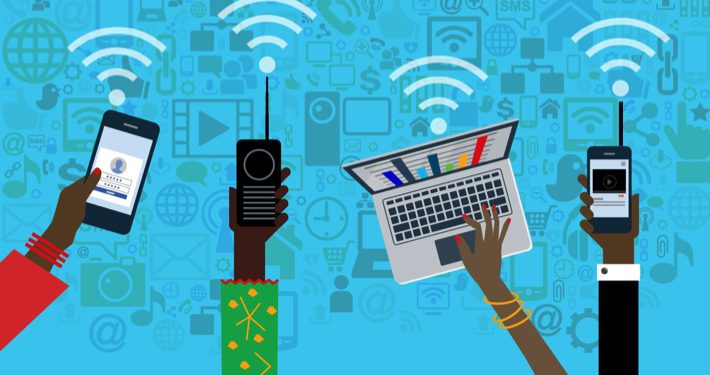Nigeria’s Digital Quality of Life DQL has worsened in 2021, with the country’s internet speed ranking among one of the slowest in the world at 13.45Mbps for broadband connections and 17.91Mbps for mobile internet.
This is coupled with internet affordability falling 90 per cent worse than the global average.
According to a DQL study conducted by Cyber security firm Surfshark, Nigeria’s internet speed, while having considerable improvements, nevertheless lags below its African peers such as Kenya and South Africa.
“Nigeria ranks 56th in the internet quality index due to low internet speeds. The country has one of the slowest broadband connection speeds globally (13.45 Mbps), ranking 105th, and slightly faster mobile internet (17.91 Mbps), ranking 96th,” said the report. “However, the country’s broadband speed growth is one of the fastest on the planet, ranking 16th.”
According to the report, the internet is “alarmingly pricey” for many Nigerians and many of those who have had to acquire internet working more than 35 hours to afford their internet expenses in Nigeria.
“Nigeria’s internet affordability is 90 per cent worse than the global average. People in Nigeria have to work the most time in the world – more than 35 hours – to afford the cheapest broadband internet,” the study noted. “The country’s e-government also does not make it to the TOP 90th, falling behind Senegal, Morocco, and Tanzania.”
The organisation emphasised the importance of conducting a global digital quality of life analysis, stating that countries must ensure that their economies have fully remote operational capabilities, as digital opportunities have proven extremely valuable during the COVID-19 crisis.
“Digital opportunities have proved to be more important than ever during the COVID-19 crisis, stressing the importance for every country to ensure fully remote operational capacities for their economies,” explained Vytautas Kaziukonis, CEO of Surfshark.
“That is why, for the third year in a row, we continue the Digital Quality of Life research, which provides a robust global outlook into how countries excel digitally,” added Mr Kaziukonis. “The index sets the basis for meaningful discussions about how digital advancement impacts a country’s prosperity and where improvements can be made.”
Peoples Gazette in February reported that a global study ranked Nigeria as the country with the least affordable internet service in the world.
The Gazette reported that Nigerians have to work 27 minutes 55 seconds to afford one gigabyte of mobile internet against the global average of 10 minutes.






